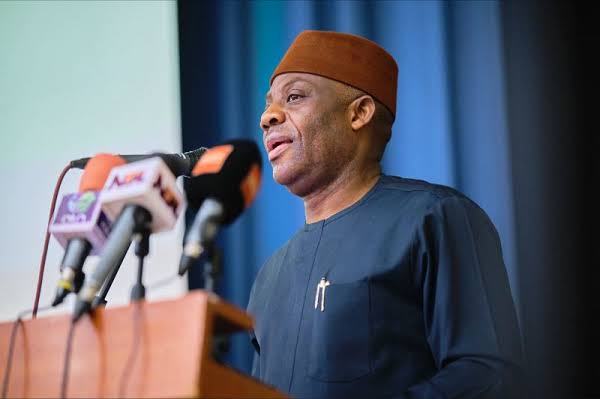The Federal Government has urged the National Council on Education (NCE) to scrap Junior Secondary School (JSS) and Senior Secondary School (SSS) and adopt a compulsory 12 years of uninterrupted basic education in the country.
Minister of Education, Dr Tunji Alausa, made the call at the 2025 extraordinary National Council on Education meeting in Abuja on Thursday, February 6, 2025.
If the new policy scales through, it would abolish the 6-3-3-4 education system and bring in place a 12-4 model of education in the country.
Alausa also sought the approval of the NCE to officially adopt 16 years as minimum entry age requirement into the country’s tertiary institutions.
Alausa noted that besides being in line with global best practices, by subsuming secondary education into basic education, students would benefit from uninterrupted learning up to the age of 16, after which they could aspire for higher education.
The minister stated that the new policy would also reduce dropout rates by eliminating financial and systemic barriers that currently prevent students from completing secondary education.
He said: “Extending basic education to 12 years will ensure a standardised curriculum that is uniformly implemented across the nation. This will also facilitate early exposure to vocational and entrepreneurial skills, preparing students for both higher education and employment.
“Many developed nations have implemented similar systems where basic education spans 12 years, ensuring that students acquire foundational knowledge before specialising at tertiary levels. This reform also aligns Nigeria’s education system with international standards, fostering better educational outcomes and global competitiveness.
“Educated youth contribute significantly to national development. When students receive an extended period of compulsory education, they are better equipped to join the workforce with relevant skills. This reform will also reduce child labour and other social vices resulting from premature school dropouts.”
The minister further highlighted the implementation strategies to successfully integrate secondary education into basic education , including policy reforms, infrastructure expansion, teacher training and recruitment, funding and partnerships, and curriculum enhancement.
Alausa added: “Primary and secondary school management is the exclusive preserve of the sub national governments while the federal government provides technical and funding support.
“Subsuming secondary education into basic education to span 12 years is a necessary step towards creating a more inclusive, equitable, and globally competitive system.
“It is time for us to embrace this reform to secure the future of our children and, ultimately, the prosperity of our nation.”

